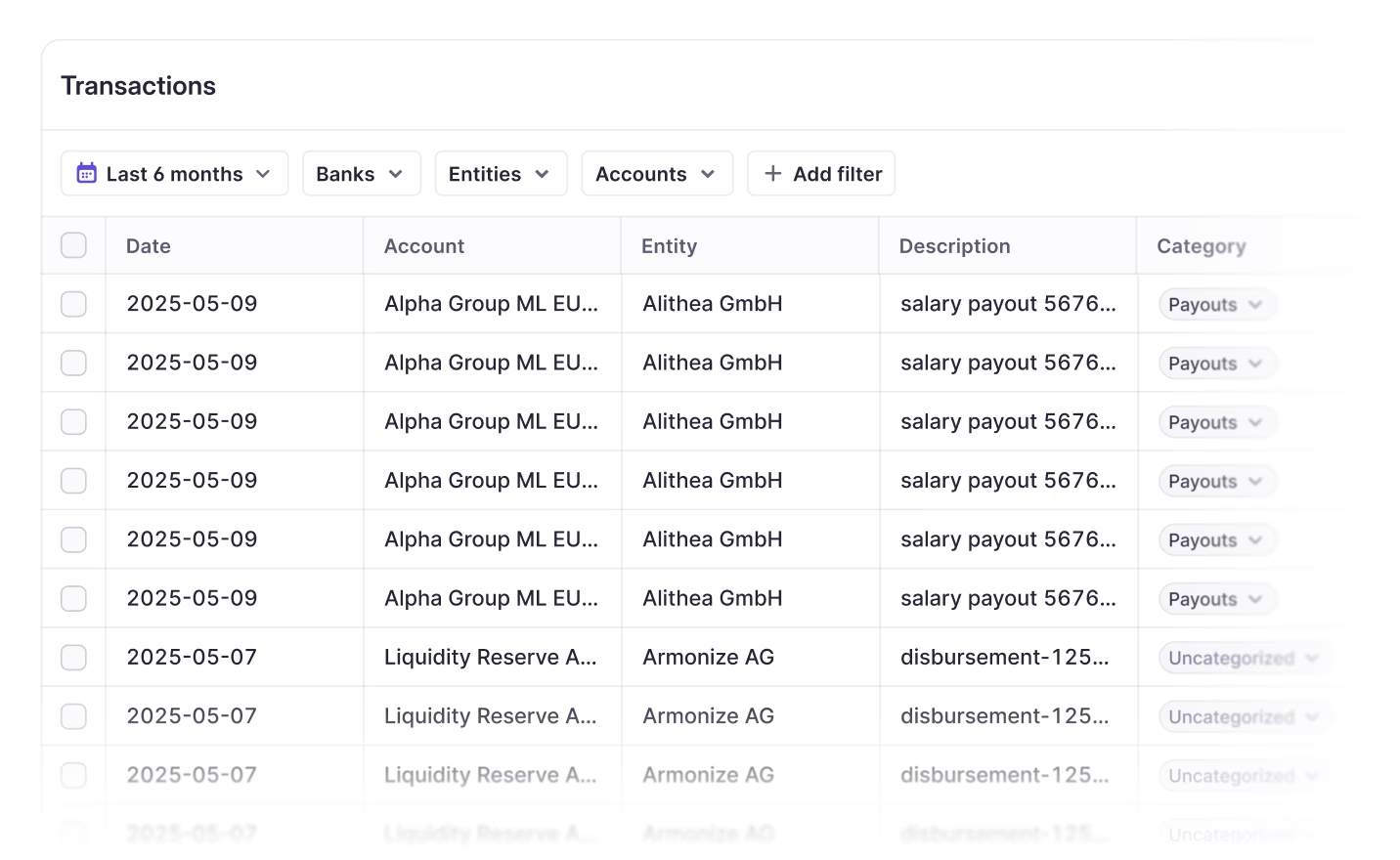What is accounting?
Accounting is the process of tracking all of your financial transactions. It’s the language of business, the backbone of your financial decision-making.

Introduction to accounting
Accounting is the process of tracking all your financial transactions. It’s the language of business, the backbone of your financial decision-making. It’s important for record-keeping and business management as well as legal and tax purposes. Key accounting tasks include:
- Bookkeeping: The act of recording financial transactions and preparing related source documents, such as invoices and receipts.
- Bank reconciliation: Reconciliation refers to the process of comparing your company's bank statements to your own records, ensuring all transactions are accounted for.
- Preparing financial statements: Financial statements like an income sheet and balance sheet detail the activities and financial performance of a company over a certain time period.
- Managing accounts payable: Ensuring that a company pays its suppliers on time.
- Managing accounts receivable: Ensuring that a company receives the money it is owed on time, including money owed by customers.
- Compliance with tax laws: Adhering to tax laws and regulations by correctly reporting income, expenses, and other financial details to the relevant authorities.
Accounting vs treasury management
Though there is frequent overlap, accounting and treasury management form two distinct functions within your business. Accounting is responsible for recording and reporting financial transactions to provide accurate financial information to internal and external stakeholders. Treasury management, on the other hand, is focused on managing your liquidity, cash flow, investments, and financial risks. The treasury management function relies on accurate financial records in order to perform tasks like analyzing cash flow and establishing a company's cash position. In some companies, payment operations like those of managing accounts payable and receivable may be part of the treasury rather than accounting function.
Managerial accounting vs cost accounting
There are two main types of accounting: managerial and cost, both of which have their own focus and objectives.
Managerial accounting provides financial information to internal stakeholders to inform their decision-making. It involves a combination of financial and non-financial data such as budgeting, forecasting, performance evaluation, and strategic planning.
Cost accounting is the analysis of the costs associated with producing goods or services. It involves tracking, recording, and analyzing costs related to materials, labor, and other expenses incurred in the production process. Its purpose is to inform decision-making around pricing, product profitability, cost control, and performance evaluation. As such, it’s used by both internal and external stakeholders like investors, regulators, and creditors.
Key accounting considerations
Data processing
Accounting involves systematically recording, analyzing, and interpreting financial information. In short, raw data goes in and a clear picture of your business finances comes out. This process begins with the recording of transactions such as sales, purchases, investments, and expenses. This data is then organized into financial statements which include a balance sheet, income statement, and cash flow statement.
This recording of financial information typically follows a set of standardized principles. The most common is the International Financial Reporting Standards (IFRS), most of which have been adopted by the EU. The US, however, has its own Generally Accepted Accounting Principles (GAAP).
Data analysis
Accounting goes beyond simply reporting financial information. Accountants will also analyze the data to identify patterns, trends, and areas of concern within the financial statements. These include ratio analysis, trend analysis, and variance analysis and they are crucial for evaluating your performance and identifying opportunities and potential threats.
Compliance
Companies must adhere to various regulatory requirements and reporting standards, which often vary from market to market. Accurate accounting is essential for ensuring compliance, especially in the event that you are audited. It will also help you prevent fraud and safeguard the integrity of your financial information.
Tax reporting
Accurate accounting will make it much easier to calculate taxable income. On top of that, it will help you identify tax-saving opportunities. These might include timing your income and expenses to minimize your liability or taking advantage of available tax credits and deductions.
Accounting in practice
The rise of globalization and its endlessly shifting regulatory landscapes have made accounting practices complex and multifaceted. And, as your business evolves, so too will your accounting needs. A small single-entity startup, for example, may only require a bookkeeper, whereas a large multinational will likely need a team of Certified Public Accountants (CPA). The good news is that advances in technology have paved the way for modern accountancy tools designed to make everyone’s lives easier. They improve accuracy, increase efficiency and save a lot of time.
How Atlar can help with your accounting
Atlar connects to both your banks and ERP system directly, enabling data to be synchronized reliably between systems. This has two main benefits. First, it lets you simplify bank reconciliation since your bank statements can be automatically fed into your ERP system and the transactions matched. Second, it lets you automate accounts payable processes. You can trigger payment runs inside your ERP and let Atlar process the payments seamlessly.
A fundamental benefit of using a modern treasury platform like Atlar is the ability to unify all of your financial data across banks, PSPs, and ERP systems into a single source of truth. Having normalized bank and ERP data in one aggregated view increases data reliability and means your finance, treasury, and accounting teams can work off the same data set without the need for manual file transfers.
Atlar offers no-code integrations with ERP systems like Oracle NetSuite and Microsoft Dynamics. To learn more about how Atlar helps automate accounting and reconciliation processes at scale, visit our Accounts Payable feature page.
You can unsubscribe anytime.
Further reading
See Atlar in action.
Enter your work email to watch a live product demo.


